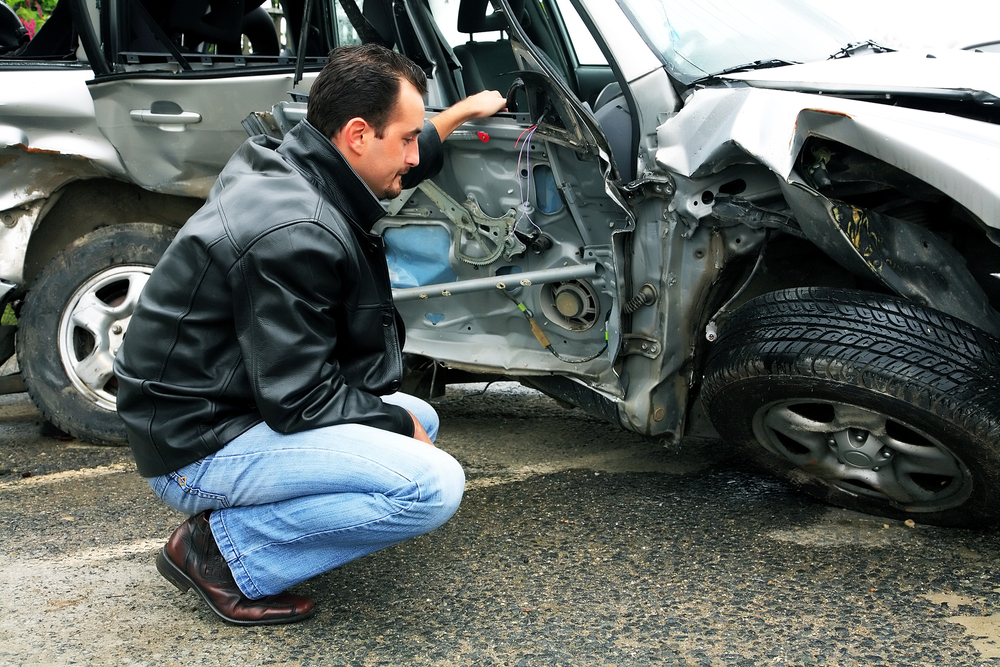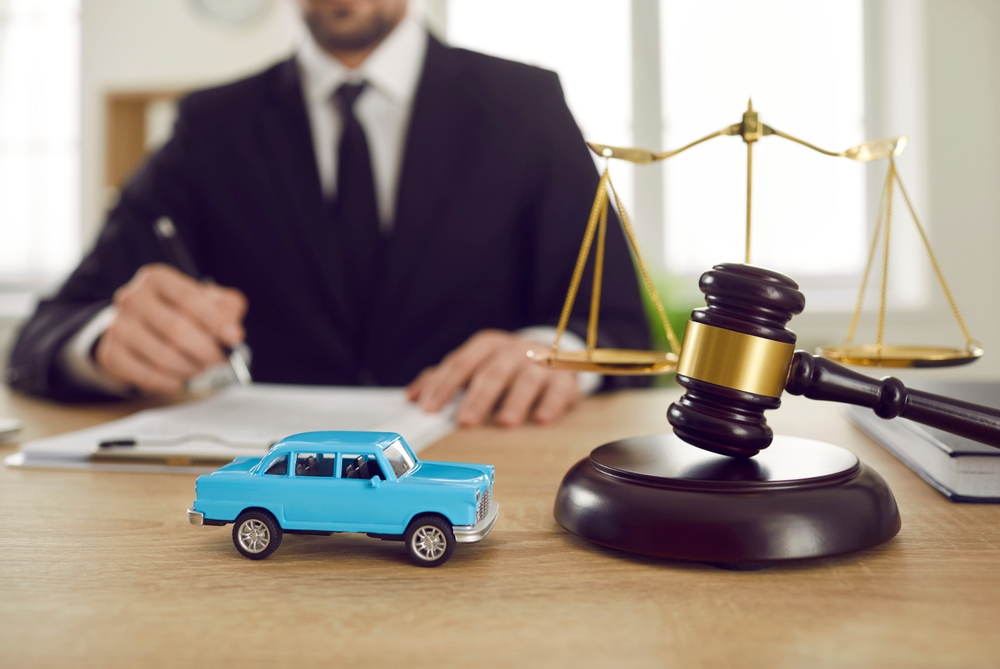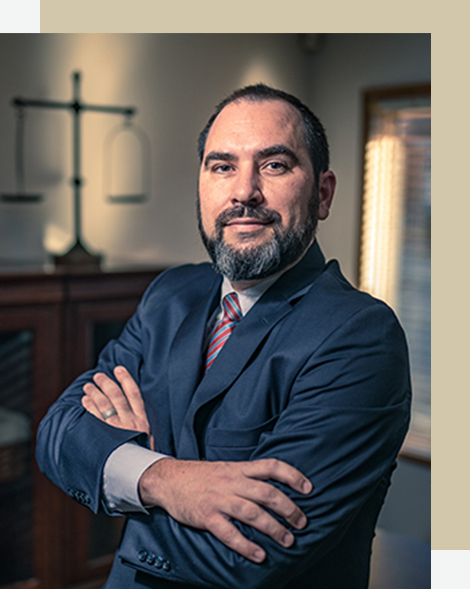Navigating the aftermath of a car accident can involve dealing with injuries and repairing your vehicle. However, if the accident was not your fault, you may recover compensation for your losses.
Understanding when to sue after a car accident is important to ensure you receive the justice and compensation you deserve. The following questions can indicate whether you might need to file a lawsuit in civil court. Always consult with an experienced Illinois car accident lawyer who can evaluate your situation and provide personalized advice and representation.
Did Another Driver or Party Cause Your Accident?
Establishing fault is one of the most important considerations in determining whether to sue after a car accident. If another driver's negligence or reckless behavior caused the accident, you may have grounds for a personal injury lawsuit.
Common examples of driver negligence include:

- Distracted driving: This includes texting, talking on the phone, eating, or any other behavior that diverts the driver's attention from the road. Distracted driving is a major cause of car accidents.
- Speeding: Driving above the posted speed limit or too fast for the current road and weather conditions can lead drivers to crash.
- Drunk driving: Operating a vehicle while under the influence of alcohol or drugs.
- Failure to obey traffic laws: Disregarding traffic signs or signals, failure to yield, running red lights, and other traffic violations regularly cause crashes.
- Aggressive driving: Engaging in aggressive behaviors such as excessive tailgating, weaving in and out of traffic, or road rage can result in severe collisions and injuries.
If you have evidence that the other driver's negligence caused the accident, such as witness statements, police reports, or video footage, it can strengthen your case. An experienced car accident lawyer can gather and present this evidence to establish fault and pursue fair compensation.
Did You Suffer Injuries and Losses in Your Accident?
Another crucial factor to consider when deciding to sue after a car accident is the extent of your injuries and losses. If you have suffered physical injuries, emotional trauma, property damage, or incurred medical expenses or lost income as a result of the accident, seeking legal action may be necessary to recover your losses.
Common injuries sustained in car accidents include:
- Whiplash: Neck injuries resulting from the sudden back-and-forth motion of the head.
- Broken bones: Fractures in the arms, legs, ribs, or other areas of the body.
- Head and brain injuries: Concussions, traumatic brain injuries (TBI), or other head injuries with long-term effects.
- Spinal cord injuries: Damage to the spinal cord resulting in partial or complete paralysis.
- Internal injuries: Damage to organs or internal bleeding.
It is important to seek immediate medical attention after a car accident, even if you do not feel any immediate pain or see visible injuries. Some injuries may only manifest symptoms after a delay, and documenting your injuries is crucial for your legal case.
Did the At-Fault Party's Insurance Company Refuse to Offer a Fair Settlement?
In many car accident cases, the at-fault party's insurance company will initially offer a settlement to compensate for your losses. However, it is not uncommon for these initial offers to be significantly lower than what you may be entitled to. Insurance companies aim to maximize their profits, often at the expense of accident victims.
If the at-fault party's insurance company refuses to offer a fair settlement or denies your claim altogether, seeking the help of a car accident attorney is crucial. An experienced lawyer can negotiate with the insurance company on your behalf and fight for the compensation you deserve. They will ensure that your rights are protected and that you are not taken advantage of by insurance adjusters.
How a Car Accident Lawyer Seeks Compensation Through a Personal Injury Lawsuit

If you decide to sue after a car accident, a car accident lawyer will guide you through the legal process and pursue compensation on your behalf.
Here's how they typically approach a personal injury lawsuit:
- Gathering evidence: Your attorney will investigate the accident and collect evidence such as accident reports, witness statements, and medical records to establish fault and build a strong case.
- Calculating damages: Your lawyer will assess the full extent of your injuries and losses, including medical expenses, property damage, lost income, pain and suffering, and future damages, to determine the appropriate compensation amount.
- Filing a lawsuit: If negotiations with the insurance company are unsuccessful, your attorney will file a lawsuit within the statute of limitations, initiating the legal proceedings.
- Discovery phase: Both parties exchange relevant information and evidence, including witness testimonies, expert reports, and any other evidence that supports your claim or defense.
- Negotiation and settlement: Your attorney will negotiate with the opposing party to reach a fair settlement. Your attorney will prepare for trial if they cannot reach a fair settlement.
- Trial: If your case goes to trial, your attorney will present your case before a judge and jury, seeking a favorable outcome.
- Post-trial: If the verdict is in your favor, your attorney will assist with collecting the awarded compensation. If the verdict is unfavorable, your attorney can explore the possibility of appealing the decision.
During each step of the process, a car accident lawyer will act as your advocate, fighting for the compensation you deserve.
Consult a Car Accident Attorney Right Away About a Possible Case
Deciding when to sue after a car accident is a significant decision that requires careful consideration. If another driver or party caused your accident, you have suffered injuries and losses, and the at-fault party's insurance company refuses to offer a fair settlement, suing the driver may be necessary.
If you have been in a car accident and are considering legal action, consult a car accident attorney as soon as possible. Prompt action can help preserve crucial evidence, protect your legal rights, and increase your chances of receiving fair compensation.
By consulting a car accident lawyer, you can have a knowledgeable and experienced advocate by your side to guide you through the legal process and fight for the compensation you deserve.
